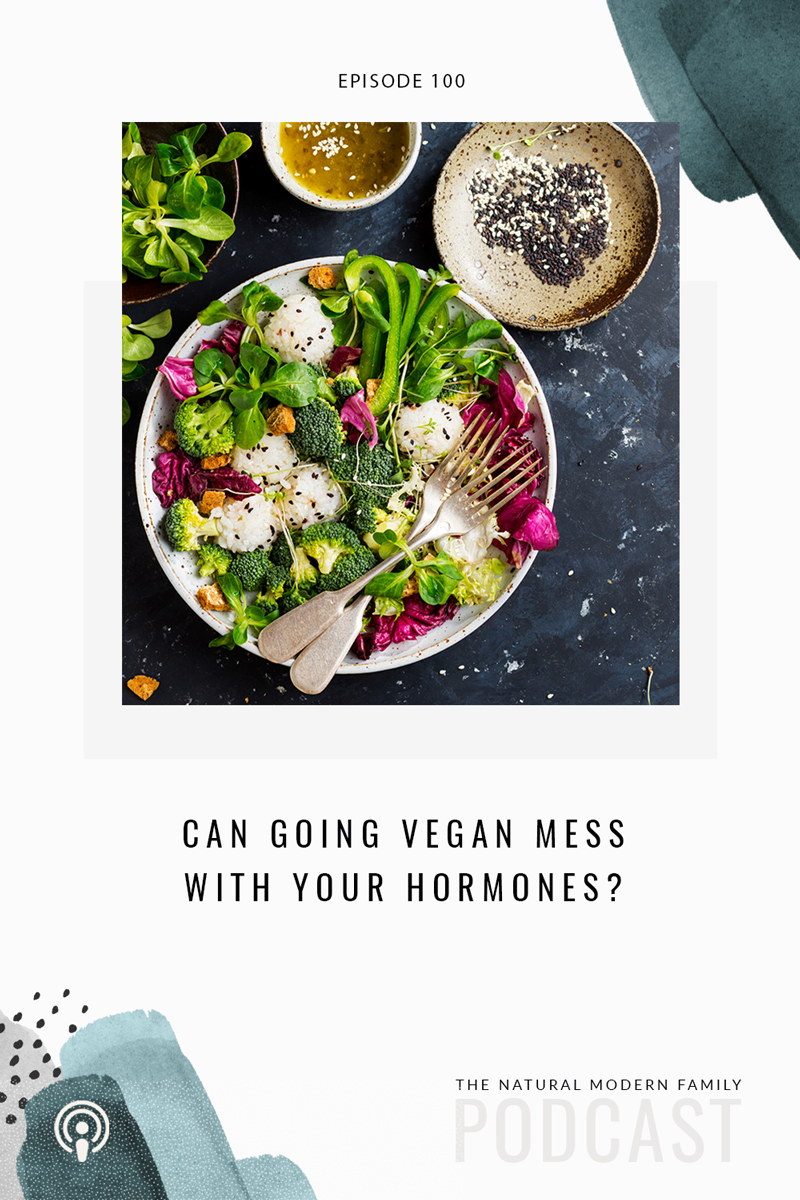Maybe you’ve heard that going vegan can help your hormones. Perhaps you are already vegan but are struggling with hormone issues. So what gives—can going vegan mess with your hormones, or can it help your hormones?!
The truth is that everyone is different, and different diets affect people differently. While bio-individuality should always be a focus, there are some things that a modern vegan diet gets wrong when it comes to happy, healthy hormone levels. In this episode, we unpack the vegan diet, the pros and cons, and how it can affect your hormones.
What is the Vegan Diet?
A vegan diet is a plant-based diet that eliminates eggs, dairy, meat, poultry, or seafood. People go vegan for different reasons. Many vegans who do so based on animal welfare avoid everything from an animal, including honey, leather, and even wool. Most people go vegan for health benefits.
Potential Benefits of the Vegan Diet
A vegan diet can help you eat more whole foods because the whole premise is to eat a plant-based diet. The more fruits and veggies you eat, the less room for processed foods. This change alone can create massive improvements in total health and well-being.
Another benefit is that a vegan diet cuts out toxic animal proteins. Conventional farmers give animals hormones that can later disrupt the hormones in your body and potentially foster estrogen dominance. They are also fed antibiotics, damaging the gut, a key area where hormones are regulated and synthesized.
Potential Downsides of a Vegan Diet
Often, vegans will try to get protein from animal-free sources like soy (think tofu). Soy is the most genetically modified crop in the world. Up to 90 percent of soybeans have been genetically modified. They are resistant to RoundUp, which is one of the most dangerous pesticides in the world due to glyphosate. Glyphosate has been linked to many diseases, including several types of cancer.
Soy is also a source of xenoestrogens, chemicals that act like estrogen in the body and can lead to estrogen dominance. Too much estrogen can also be a result of processed foods, corn, barley, wheat, unhealthy oils like canola oil, and vegetable oils.
Another potential downside to a vegan diet related to hormones is the overconsumption of processed vegan food. Vegan cheeses, meat substitutes, etc., can have really junky ingredients. This can lead to micronutrient deficiencies.
Other cons include not getting enough protein, which is needed for hormone production. A vegan diet is also sometimes overflowing with sugar because of grain-based products like granola bars, cereal, and overconsumption of fruit and dried fruits.
Key considerations for making vegan diet work: needs to be plant forward, make sure you are getting enough protein, avoid inflammatory foods, be careful with estrogen dominant foods (always opt for organic).
For a deeper look into how the vegan diet impacts hormone levels, check out our article here.
Featured in this episode…
16: Too Many People Are Eating This Dangerous Chemical: Glyphosate
Do You Have Estrogen Dominance?
Sources
- https://www.ncbi.nlm.nih.gov/pmc/articles/PMC3074428/
- https://www.ncbi.nlm.nih.gov/pmc/articles/PMC6390141/
- https://www.cornucopia.org/2013/06/top-10-most-common-gmo-foods/
- https://www.healthline.com/nutrition/protein-deficiency-symptoms#TOC_TITLE_HDR_10
- https://draxe.com/nutrition/5-high-estrogen-foods-avoid/





READ the Latest
Health Habits
Longevity
Health Habits
Health Habits